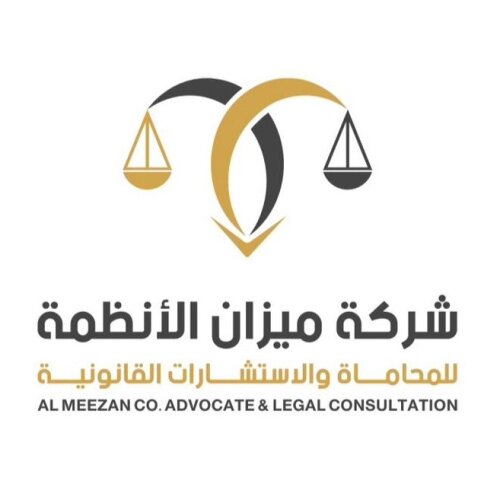Best Trusts Lawyers in Makkah
Share your needs with us, get contacted by law firms.
Free. Takes 2 min.
List of the best lawyers in Makkah, Saudi Arabia
About Trusts Law in Makkah, Saudi Arabia
Trusts in Makkah, Saudi Arabia, are governed by a combination of Islamic law and the laws of the Kingdom. A trust is a legal arrangement where a trustee holds assets on behalf of beneficiaries. In Makkah, trusts are primarily used for estate planning and wealth management purposes.
Why You May Need a Lawyer
You may need a lawyer to help you navigate the complex legal requirements surrounding trusts in Makkah. Common situations where legal assistance may be necessary include setting up a trust, interpreting trust documents, resolving disputes among beneficiaries, or ensuring compliance with local laws.
Local Laws Overview
In Makkah, trusts are governed by the Law of Trusts in Civil Transactions and the Islamic principles of Shari'a law. Trustees are required to act in the best interests of the beneficiaries and manage the trust assets prudently. Additionally, trust documents must comply with the formalities prescribed by law to be valid.
Frequently Asked Questions
1. What is a trust and how does it work in Makkah?
In Makkah, a trust is a legal arrangement where a trustee holds assets on behalf of beneficiaries for specified purposes. The trustee has a fiduciary duty to manage the assets in the best interests of the beneficiaries.
2. Who can create a trust in Makkah?
In Makkah, any competent person can create a trust, including individuals, corporations, or charitable organizations. The creator of the trust, known as the settlor, determines the terms and conditions of the trust.
3. What are the different types of trusts available in Makkah?
In Makkah, common types of trusts include revocable trusts, irrevocable trusts, charitable trusts, and discretionary trusts. Each type has its own characteristics and purposes, depending on the settlor's objectives.
4. How can I choose a trustee for my trust in Makkah?
When selecting a trustee for your trust in Makkah, consider someone who is trustworthy, competent, and willing to fulfill their obligations. It is advisable to choose a trustee who has experience in managing trust assets and is familiar with local laws.
5. What are the key responsibilities of a trustee in Makkah?
Trustees in Makkah are responsible for managing the trust assets, acting in the best interests of the beneficiaries, and complying with the terms of the trust. They must also keep accurate records, provide regular reports to beneficiaries, and avoid conflicts of interest.
6. Can a trust be contested in Makkah?
In Makkah, beneficiaries or interested parties can contest a trust if they believe it is invalid, the trustee is not acting in their best interests, or there is a breach of trust. It is advisable to seek legal advice if you wish to contest a trust.
7. How are trust assets distributed in Makkah?
Trust assets in Makkah are distributed according to the terms of the trust document. The trustee is responsible for distributing the assets to the beneficiaries in accordance with the settlor's instructions and any applicable laws.
8. What are the tax implications of trusts in Makkah?
In Makkah, trusts are subject to specific tax rules that govern the taxation of trust income and distributions. It is advisable to consult a tax adviser or lawyer to understand the tax implications of setting up a trust in Makkah.
9. How can I protect my assets through a trust in Makkah?
Setting up a trust in Makkah can help protect your assets from creditors, ensure their smooth transfer to beneficiaries, and provide continuity of management. Consult a lawyer to establish a trust structure that meets your asset protection goals.
10. How can I dissolve a trust in Makkah?
Dissolving a trust in Makkah requires following the procedures outlined in the trust document or applicable laws. Trustees may need to obtain consent from beneficiaries, dispose of trust assets, and settle any outstanding liabilities before terminating the trust.
Additional Resources
For additional information and assistance related to trusts in Makkah, you can contact the Ministry of Justice or consult legal professionals specializing in trusts and estate planning.
Next Steps
If you require legal assistance in setting up, managing, or resolving issues related to trusts in Makkah, it is advisable to seek the advice of a qualified lawyer with experience in trust law. They can provide guidance on the legal requirements, draft necessary documents, and represent your interests in legal proceedings if necessary.
Lawzana helps you find the best lawyers and law firms in Makkah through a curated and pre-screened list of qualified legal professionals. Our platform offers rankings and detailed profiles of attorneys and law firms, allowing you to compare based on practice areas, including Trusts, experience, and client feedback.
Each profile includes a description of the firm's areas of practice, client reviews, team members and partners, year of establishment, spoken languages, office locations, contact information, social media presence, and any published articles or resources. Most firms on our platform speak English and are experienced in both local and international legal matters.
Get a quote from top-rated law firms in Makkah, Saudi Arabia — quickly, securely, and without unnecessary hassle.
Disclaimer:
The information provided on this page is for general informational purposes only and does not constitute legal advice. While we strive to ensure the accuracy and relevance of the content, legal information may change over time, and interpretations of the law can vary. You should always consult with a qualified legal professional for advice specific to your situation.
We disclaim all liability for actions taken or not taken based on the content of this page. If you believe any information is incorrect or outdated, please contact us, and we will review and update it where appropriate.








